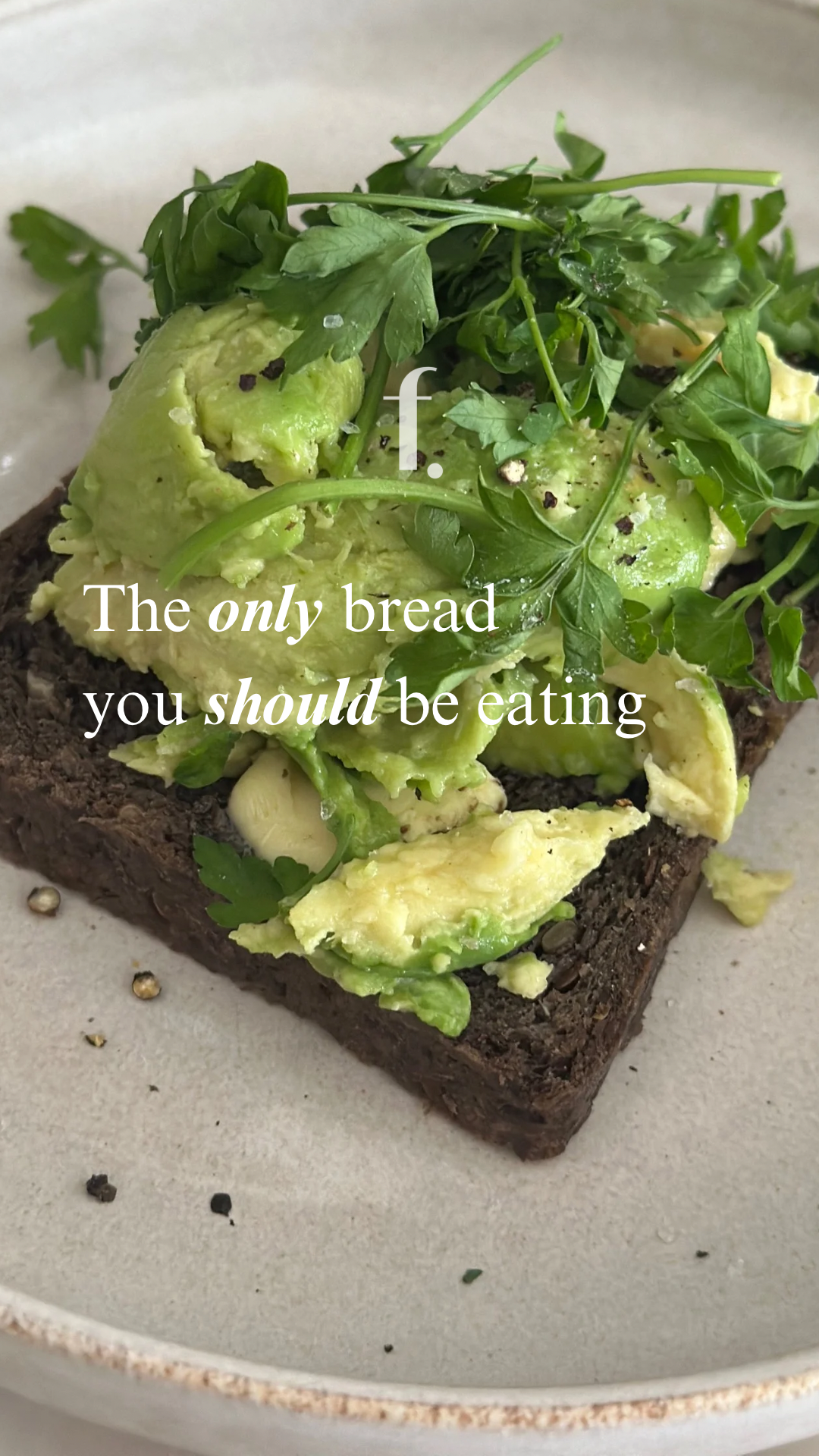
The Only Bread You Should Be Eating: Flaxseed Bread for Gut, Hormone & Metabolic Health
If you're starting your day with supermarket bread—whether it’s white toast, brown wholegrain, or even sourdough—you may be compromising your gut health, hormone balance, and metabolic resilience without realising it.
Traditional breads, especially those made with wheat, are high in carbohydrates and contain gluten, a protein that can negatively affect gut integrity in everyone—not just those with coeliac disease.
By contrast, flaxseed bread is naturally gluten-free, low in carbs, rich in anti-inflammatory omega-3s, and supportive of both gut and hormone health. It’s also keto-friendly and easy to make at home. Here's why it might be the only bread your body actually thanks you for.
Why Conventional Bread Can Be Harmful to Gut and Hormone Health
Gluten, a protein found in wheat, barley, and rye, is best known for triggering severe immune responses in people with coeliac disease. However, emerging research shows that gluten can increase intestinal permeability (“leaky gut”) in everyone—even those without a diagnosed gluten sensitivity.
Gluten stimulates a protein called zonulin, which regulates the tight junctions between cells in the gut lining. Elevated zonulin levels lead to gaps in the intestinal barrier, allowing particles like toxins, microbes, and undigested food proteins to pass into the bloodstream. This triggers immune activity and contributes to chronic, low-grade inflammation, often without immediate symptoms.
🔁 Gluten’s Long-Term Effects May Include:
-
Bloating, gas, irregular bowel movements
-
Food sensitivities
-
Skin issues (e.g. eczema, acne, rosacea)
-
Mood disturbances and brain fog
-
Hormonal dysregulation
-
Immune activation and inflammation
You don’t have to have coeliac disease or autoimmunity to be affected. If you’re struggling with gut issues, fatigue, skin flare-ups, or hormone imbalance, eliminating gluten can be a foundational step toward healing.
What About Sourdough and Artisan Bread?
✅ Better—but not benign.
Sourdough and naturally fermented artisan breads are easier to digest than supermarket loaves. The fermentation process partially breaks down gluten and reduces phytic acid, which can otherwise block mineral absorption.
But here’s the catch:
-
Sourdough still contains gluten, and therefore still stimulates zonulin and intestinal permeability.
-
It’s also high in carbohydrates, which can spike blood sugar and insulin—counterproductive for individuals managing hormone conditions, blood sugar dysregulation, or inflammation.
-
Even organic, slow-fermented sourdough won’t suit those on a keto, low-carb, or anti-inflammatory nutrition plan.
Why Flaxseed Bread Is a Gut & Hormone-Supportive Superfood
Flaxseed bread skips the grains entirely. It’s made from ground golden flaxseeds, one of nature’s richest plant-based sources of omega-3s, fibre, and hormone-supportive lignans.
✅ Nutritional Benefits of Flaxseed Bread:
-
Rich in Omega-3 ALA: Helps reduce inflammation, support brain and skin health, and improve hormone production.
-
High in Fibre: Supports healthy bowel function and feeds beneficial gut bacteria.
-
Contains Lignans (Phytoestrogens): These plant compounds help balance estrogen metabolism and support hormonal health, especially during perimenopause and menopause.
-
Low in Carbohydrates: Won’t spike blood sugar or insulin.
-
Keto-Friendly: Promotes nutritional ketosis, a fat-burning state that supports stable energy, mental clarity, and metabolic resilience.
🔬 Flaxseed Bread and Ketosis
Unlike most gluten-free breads—which are often high in starch and processed flours—flaxseed bread is naturally low in carbohydrates and high in healthy fats. This makes it ideal for:
-
Supporting ketosis and fat-burning
-
Promoting stable blood sugar and sustained energy
-
Improving mental clarity and reducing cravings
-
Enhancing inflammation resolution and metabolic repair
It’s a rare bread that actively supports your health, rather than undermining it.
🍞 Flaxseed Bread Recipe
Simple. Nourishing. Therapeutic.
Ingredients
-
260g golden flaxseed (whole, not ground)
-
240ml warm or hot water
-
1 tbsp (12g) baking powder
-
1 tsp (6g) baking soda
-
1 tsp (5ml) apple cider vinegar
-
½ tsp (2.9g) salt
-
Optional: 1 tbsp mixed whole seeds (e.g. sesame, sunflower)
Instructions
-
Preheat the oven to 180°C and grease or line a loaf pan.
-
Grind the flaxseed: Blend half at a time until it becomes a fine flour.
-
Combine dry ingredients in a bowl: flaxseed flour, baking powder, baking soda, and salt.
-
Add water and vinegar and mix well. The dough will thicken quickly.
-
Shape the dough in the loaf pan. Smooth the top and place into the oven immediately to capture the rise.
-
Bake for 50–60 minutes. Check with a toothpick at 50 minutes. If it comes out clean, it's ready. Cover with foil if browning too fast.
-
Cool completely on a wire rack before slicing.
Tips & Variations
-
Storage: Keeps for 5–7 days in an airtight container or can be sliced and frozen for up to 3 months.
-
Flavour Boost: Add herbs (rosemary, garlic), spices (cumin, turmeric), or seeds for variety.
-
Serving: One slice = one serving. Delicious with eggs & avocado, nut butter, or alongside soup.
Not got time to make this recipe? I recommend a store bought version, Keto Flax Bread by Dillon Organic
Summary
Flaxseed bread is more than a gluten-free alternative—it’s a therapeutic food for anyone seeking to improve gut function, stabilise hormones, reduce inflammation, or support a low-carb lifestyle.
Whether you're managing IBS, navigating perimenopause, or simply want to feel more energised and balanced, this is the kind of bread that works with your body, not against it.
➡️ Work with me 1:1 book a consultation
